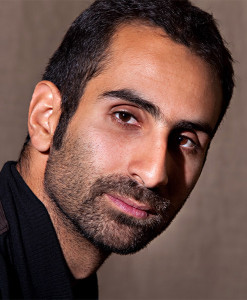When I first graduated from college with a shiny new diploma and a solid musical foundation I did what most young artists do: work in a cafe. I had no idea how to take the next step in my career and spent many years trying to figure it out. Eventually I did and established a decent career as a freelance musician.
It’s nearing the end of the school year, and for many that means an impending graduation followed by being flung into the ‘real’ world. Maybe that’s you, maybe it’s your students. Either way, here are some tips I’ve picked up over the years that I think will prove helpful for those about to engage in the world of professional vocal music as singers, conductors, and composers.
- Get More Ensemble Experience
Learning to sing with others makes up the majority of most singers careers. Even the best vocalists still spend much of their early career singing in church, opera chorus, etc. Developing an ear for harmony and the vocal flexibility required for ensemble work is key to your future success. More than this, however, is the network you can build from singing with others. When I first moved to New York I sang with three professional choirs, and just about all the work I have done in the following years (Recordings, opera, freelance, conducting, even arts administration) have been because of connections I made in those ensembles.
- Find a Mentor
This can be a vocal coach, music director, or composition teacher, but it’s an invaluable part of your continued growth as an artist. Many young artists graduate from school programs and move to a new city to start their careers. Having a mentor will help connect you to the scene in your area and potentially help you find initial work or important connections as you start your career.
- Learn to Sight Read for Real
Ear training and sight singing is the bane of music students the world over, but it is the single most valuable skill I’ve learned as a chorister. It will make you eligible for better ensembles, and more hirable for ANY sort of singing work. As a conductor, you’ll feel way more confident and being able to sing any part in a score will earn the trust of your singers. Find a book of sight-singing excerpts or make a date with friends and sing through madrigals, but don’t put this off!
- Embrace New Music
Every artist needs a niche, and new music is so varied that it’s easier to find one within that broad spectrum of contemporary work. You’ll be amazed at the depth and variety of work being created, stay open minded to new possibilities and explore. There are also more foundations ready to support new music than any other area, and it puts you in a community of living and breathing artists who are building the future of music. Be a part of it!
- Make Friends with Composers
To go along with the above, get to know composers. Many singers and conductors have made a name for themselves because of their consistent work with a single creative artist (just ask yourself if Sarah Brightman would have made it alone). Similarly, working with a talented performer has helped many a composer get the exposure they need to build their careers. Music is all about building harmony, and this applies socially as well as creatively. Finding a collaborator you click with doubles both your chances of a successful career.
- Honor Your Commitments
It’s astounding how often people back-out of their commitments and leave their colleagues hanging. Nothing will hurt your future music more. In a world with dozens of artists trying to make it, one of the best ways to stand out is to be reliable.
- Don’t Work for Free (but not only for money)
Everyone and their mother is going to ask you to work for free, it’s an integral part of the arts culture. Don’t do it! Money, however, isn’t the only way to be compensated for your work. Before taking on a job, ask yourself “What of value am I getting out of this project?” Is it the chance to work with an artist you admire? Gain a certain skill set or experience? Will it be a ton of fun? When I joined C4: The Choral Composer/Conductor Collective, my main compensation was the opportunity practice conducting with a high caliber group that would also perform my music. Without that experience I wouldn’t have established my career or this business with the same base of support.
- Audition, but Also Make Friends
Of course, auditioning for ensembles and applying for jobs is an integral part of your work, but nothing will help your career more than making a good impression. 90% of the work I’ve received as a freelance artist came because of somebody’s recommendation. Sometimes it was because they liked my work but most of the time it was because they liked HOW I did my work. Be well prepared, kind, and willing to take the initiative and you’ll stand out as someone people enjoy working with. Such a reputation will help me every bit as much as your talent.

Fahad is the director of See-A-Dot Music Publishing, Inc., a company devoted to the advocacy of new choral works and emerging composers. He is a conductor with C4: The Choral Composer/Conductor Collective and of the Columbia University Glee Club, and voice faculty at the Peridance Institute. He works as a chorister and soloist in New York specializing in new music, particularly improvisation and the use of extended vocal techniques. As a composer, he focuses on music for the voice, but has written for theater, film, and classical ensembles such as the California EAR unit and the TOCCATA Symphony Orchestra. Learn more at www.fahadsiadat.com


